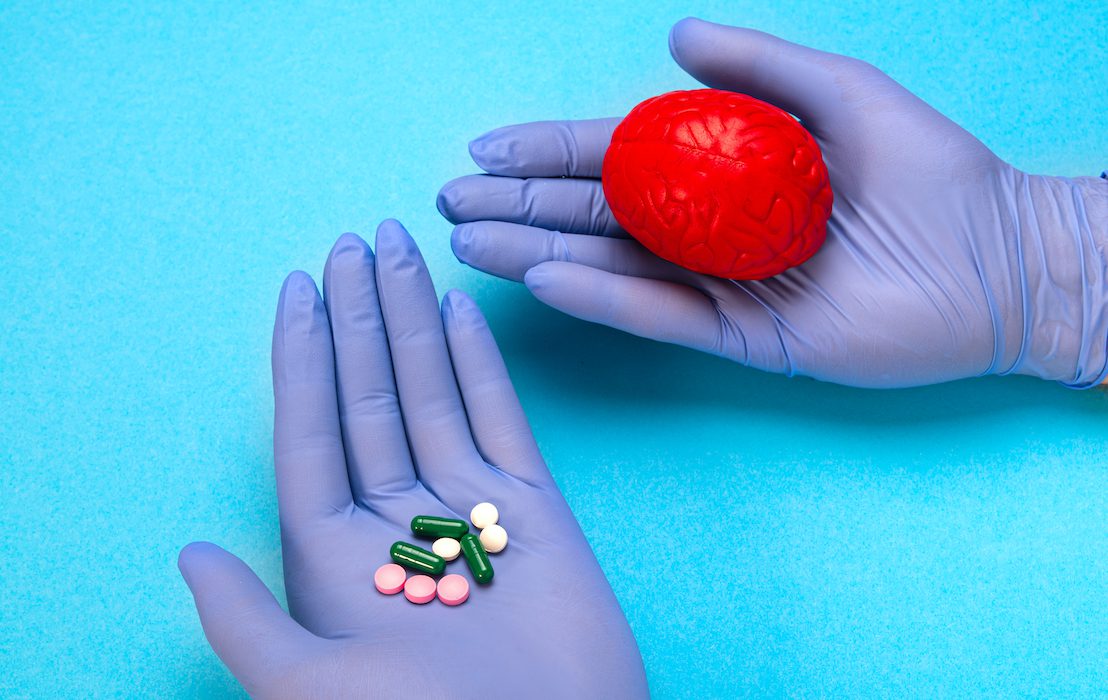Pushing Pills on TikTok

A lot of teenage girls on TikTok claim to have Tourette’s syndrome. It is extraordinarily unlikely that they are telling the truth. Tourette’s is four times more prevalent in boys than girls and typically presents between the ages of five and seven. The videos of many alleged sufferers are not convincing.
It’s not limited to Tourette’s. Take dissociative identity disorder, for example. There is a good chance the condition itself is fake. If it does exist, it is extraordinarily rare. And yet there are hundreds of videos on TikTok with unhappy-looking teenagers switching between “personalities,” flipping voices and poses like they’re Sally Field in Sybil. They don’t look tortured or deranged—none of them are frothing at the mouth or having conniption fits. They have enough composure to produce well-choreographed videos dramatizing their “condition” for their hundreds of thousands of followers.
Each mental illness you plug into the search bar has its own little community of sufferers who post their travails on the platform. Some of them really seem to be mentally ill. Others do not. Many of the supposed sufferers self-diagnose with bipolar or borderline personality disorder—relatively rare and serious conditions.
Kyle Robertson is the co-founder of the mental-health startup Cerebral. His company provides customers with direct-to-door prescription psychiatric medication. It also runs its own TikTok account, where it promotes “medication management for anxiety, depression, insomnia [and] more.” It has several paid “influencers” who post promotional spots on the site with the hashtag #cerebralpartner. It even brought on Olympic gymnast Simone Biles as a “chief impact officer.”
Plugging SSRIs on TikTok is a little like selling OxyContin outside of a rehab facility. It may be evil, but you marvel at the gall.
Robertson is an East Asian studies graduate from Columbia who—of course—served on Barack Obama’s National Economic Council. Both of his parents work in the mental-health field. He got his seed money from SoftBank, the Japanese holding company that underwrote Uber and WeWork. As of December 2021, Cerebral had a $4.8 billion valuation.
On its website, Cerebral describes itself as a “mental health subscription” service. It provides subscribers with talk therapy and, if appropriate, psychiatric medication in the mail. For a monthly fee, subscribers can talk to a “care counselor,” who is not necessarily a licensed counselor, and a prescriber, who sends out medication on a monthly basis. If subscribers choose to pay for a higher tier plan—up to $325 per month—they can speak to a licensed psychotherapist instead of the “care counselor.”
The only reason Cerebral exists is a pandemic-era regulatory change at the Drug Enforcement Agency. In January 2020, the DEA relaxed its remote-prescription restrictions under the Ryan Haight Act. The rule change allowed doctors to prescribe everything from Schedule V drugs like Lyrica and Robitussin through Schedule II drugs like OxyContin and Vicodin in telehealth sessions without in-person consultation. This allowed Robertson to create a company in which potentially addictive drugs like Xanax and Adderall change hands without the prescriber ever physically meeting the patient.
Cerebral’s success partially stems from its ability to give patients what they want: meds. Chief Medical Officer David Mou reportedly told employees that 95 percent of clients who see a nurse should be given a prescription, which the company disputes. The review feature on Cerebral—where patients can leave reviews for the company’s in-house nurses and treatment providers—allows patients who are denied medicine to leave vindictive reviews for uncooperative prescribers. Pressure from management and the threat of negative patient reviews forces many Cerebral nurses to prescribe life-altering medication without so much as an in-person consultation.
Cerebral has probably done good for some people who need medication. It almost certainly has hooked others on a drug that has the potential to permanently alter their brain chemistry. SSRIs like Zoloft, Prozac, and Lexapro work for some patients with severe and persistent forms of depression. They do not work for others. In many cases, they make the problem worse. They are very difficult to wean off.
To the extent the drugs work at all, we do not know why. The chemical-imbalance theory of mental illness has been totally discredited. There is no credible evidence that low serotonin levels are the primary cause of depression. We do not know whether the long-term effects of these drugs are worth whatever benefits they provide to sufferers. It certainly should not be the remedy of choice for people with “relationship issues” or low “confidence and self-esteem,” both of which are listed on the Cerebral website. We certainly do not know enough to be casually prescribing them to people without an in-person consultation.
Cerebral’s TikTok page has a post celebrating the “feeling of realizing you finally are prioritizing your mental health and well-being over everything.” We used to have a word for “prioritizing” your “well-being over everything,” and we counted among the capital sins. Whatever else might be said about the company, you cannot accuse Cerebral of hypocrisy.
Editor’s Note: Cerebral does not treat individuals under the age of 18.